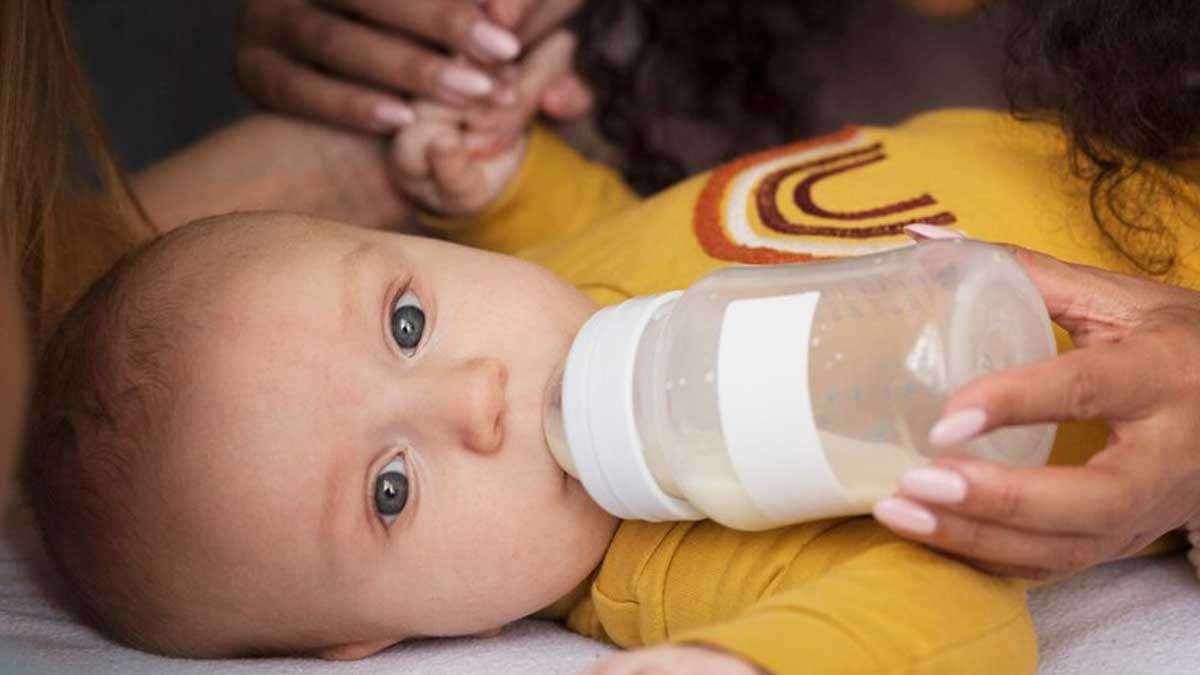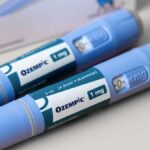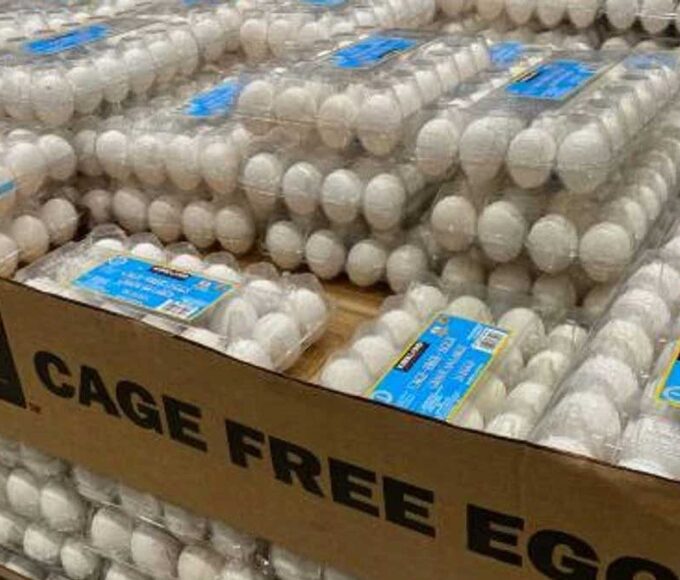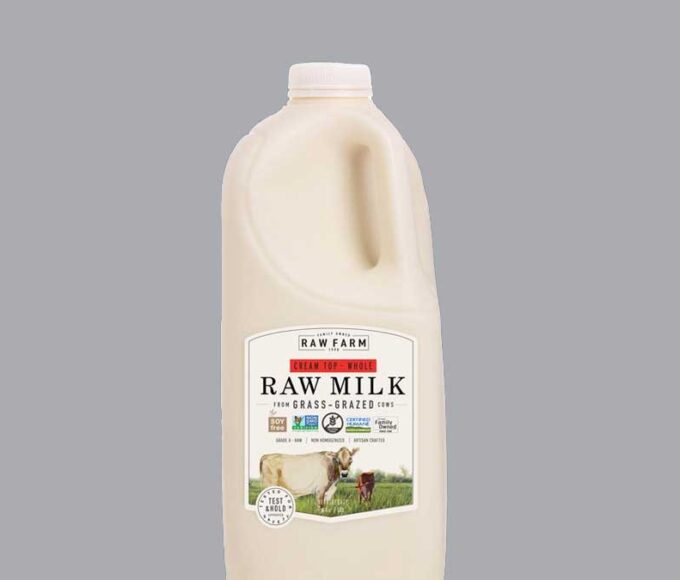- Home
- Billionaires
- Investing Newsletters
- 193CC 1000
- Article Layout 2
- Article Layout 3
- Article Layout 4
- Article Layout 5
- Article Layout 6
- Article Layout 7
- Article Layout 8
- Article Layout 9
- Article Layout 10
- Article Layout 11
- Article Layout 12
- Article Layout 13
- Article Layout 14
- Article Sidebar
- Post Format
- pages
- Archive Layouts
- Post Gallery
- Post Video Background
- Post Review
- Sponsored Post
- Leadership
- Business
- Money
- Small Business
- Innovation
- Shop
Recent Posts
Lawsuits Claim Baby Bottle Makers Misled on Microplastic Risks

Philips North America and Handi-Craft Company, the parent company of Dr. Brown’s Baby, face separate lawsuits filed Tuesday alleging that their baby bottles, marketed as ‘BPA free,’ mislead consumers by not disclosing potential exposure to toxic microplastics when heated. The class action suits, filed by California-based Clarkson Law Firm, contend that the companies failed to adequately warn caregivers and parents about the alleged release of harmful chemicals into food and drinks when their bottles are heated.
The lawsuits argue that despite the ‘BPA free’ labels, which suggest safety from harmful chemicals, both Philips and Dr. Brown’s Baby bottles are made from polypropylene, a type of microplastic. This material, according to the suits, can seep into contents when exposed to heat, posing risks to infants and children. While the companies disclose the use of polypropylene on their websites, the suits claim this information is not prominently displayed on product packaging where consumers expect clear safety disclosures.
Citing various studies, the suits highlight potential health risks associated with microplastic exposure in young children, including impacts on digestive, immune, reproductive, central nervous, and circulatory systems. The lawsuits argue that the ‘BPA free’ label may mislead consumers by implying a higher standard of safety than what is actually provided, given the potential risks associated with microplastic exposure.
BPA, a chemical previously common in plastics, was banned from baby bottles and cups by the FDA in 2012 due to health concerns related to leaching into food. Since then, polypropylene has become a popular alternative in baby bottle manufacturing, accounting for a significant portion of global sales. Studies referenced in the suits indicate that heating polypropylene bottles can release significant amounts of microplastics, potentially exposing infants to millions of particles per liter, including smaller nanoplastics.
Clarkson Law Firm seeks monetary compensation, including restitution, punitive damages, and penalties, on behalf of affected consumers. They demand that manufacturers either prominently disclose the use of polypropylene on product labels, modify the bottles to prevent microplastic release, or discontinue their sale altogether.
Shireen Clarkson, partner at Clarkson Law Firm, expressed concern over the alleged lack of transparency regarding product safety: ‘As a mother, it’s incredibly concerning that companies claiming to prioritize children’s safety may be downplaying the risks of their products for profit. These companies must be held accountable, and parents need clear information about the potential dangers.’
In contrast, organizations like the American Academy of Pediatrics advocate for polypropylene baby bottles as a safe alternative to BPA-containing plastics, noting FDA approval for food contact and its perceived safety relative to other plastics due to its heat-resistant properties. Clean Product Action, a nonprofit group, has also identified polypropylene as among the ‘most benign’ plastics in terms of environmental and health impacts.
Recent Posts
Categories
- 193 Countries Consortium Partner1
- 193cc Digital Assets2
- 5G1
- Aerospace & Defense48
- AI37
- Arts3
- Banking & Insurance11
- Big Data3
- Billionaires1,467
- Boats & Planes1
- Business332
- Careers13
- Cars & Bikes79
- CEO Network1
- CFO Network17
- CHRO Network1
- CIO Network1
- Cloud10
- CMO Network18
- Commercial Real Estate7
- Consultant1
- Consumer Tech194
- CxO1
- Cybersecurity73
- Dining1
- Diversity, Equity & Inclusion4
- Education7
- Energy8
- Enterprise Tech29
- Events11
- Fintech1
- Food & Drink2
- Franchises1
- Freelance1
- Future Of Work2
- Games149
- GIG1
- Healthcare79
- Hollywood & Entertainment203
- Houses1
- India’s 1000 Richest1
- Innovation46
- Investing2
- Investing Newsletters4
- Leadership65
- Lifestyle11
- Manufacturing1
- Markets20
- Media327
- Mobile phone1
- Money13
- Personal Finance2
- Policy569
- Real Estate1
- Research6
- Retail1
- Retirement1
- Small Business1
- SportsMoney42
- Style & Beauty1
- Success Income1
- Taxes2
- Travel10
- Uncategorized14
- Vices1
- Watches & Jewelry2
- world's billionaires1,436
- Worlds Richest Self-Made Women2
Related Articles
Musk Endorses Mounjaro, Backs Affordable Weight-Loss Drugs
Elon Musk, the CEO of Tesla, made headlines on Christmas Day with...
By 193cc Agency CouncilDecember 27, 2024What Healthcare Can Learn from Nvidia’s Success
The tech industry is undergoing a seismic transformation, with two of its...
By 193cc Agency CouncilDecember 16, 2024Salmonella Triggers Recalls of Costco Eggs and Cucumbers
The recent salmonella outbreak has prompted the recall of two major food...
By 193cc Agency CouncilNovember 30, 2024Bird Flu Found in Raw Milk in California, Recall Issued
California health authorities have confirmed the presence of the bird flu virus...
By 193cc Agency CouncilNovember 25, 2024















Leave a comment